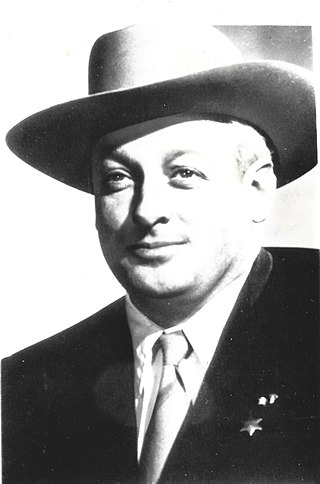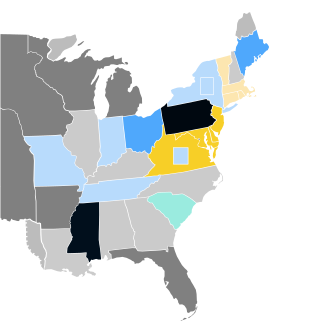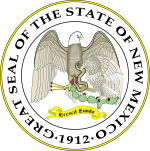
Margaret Madeline Chase Smith was an American politician. A member of the Republican Party, she served as a U.S. representative (1940–1949) and a U.S. senator (1949–1973) from Maine. She was the first woman to serve in both houses of the United States Congress. A Republican, she was among the first to criticize the tactics of Joseph McCarthy in her 1950 speech, "Declaration of Conscience".

The 1978 United States Senate elections were held on November 7, in the middle of Democratic President Jimmy Carter's term. The 33 seats of Class 2 were contested in regular elections. Special elections were also held to fill vacancies.

The 1970 United States Senate elections was an election for the United States Senate. It took place on November 3, with the 33 seats of Class 1 contested in regular elections. Special elections were also held to fill vacancies. These races occurred in the middle of Richard Nixon's first term as president. The Democrats lost a net of three seats, while the Republicans and the Conservative Party of New York picked up one net seat each, and former Democrat Harry F. Byrd Jr. was re-elected as an independent.

The 1964 United States Senate elections were held on November 3. The 33 seats of Class 1 were contested in regular elections. Special elections were also held to fill vacancies. They coincided with the election of President Lyndon B. Johnson by an overwhelming majority, to a full term. His Democratic Party picked up a net two seats from the Republicans. As of 2023, this was the last time either party has had a two-thirds majority in the Senate, which allowed the Senate Democrats to override a veto, propose constitutional amendments, or convict and expel certain officials without any votes from Senate Republicans. However, internal divisions would have prevented the Democrats from having done so. The Senate election cycle coincided with Democratic gains in the House in the same year.

The 1962 United States Senate elections was an election for the United States Senate. Held on November 6, the 34 seats of Class 3 were contested in regular elections. Special elections were also held to fill vacancies. They occurred in the middle of President John F. Kennedy's term. His Democratic Party made a net gain of four seats from the Republicans, increasing their control of the Senate to 68–32. However, this was reduced to 67–33 between the election and the next Congress, as on November 18, 1962, Democrat Dennis Chávez, who was not up for election that year, died. He was replaced on November 30, 1962, by Republican appointee Edwin L. Mechem. Additionally, Democrat Strom Thurmond became a Republican in 1964, further reducing Democrats to 66–34. This was the first time since 1932 that Democrats gained seats in this class of Senators.

The 1958 United States Senate elections were elections for the United States Senate which occurred in the middle of President Dwight D. Eisenhower's second term. Thirty-two seats of Class 1 were contested in regular elections, the new state of Alaska held its first Senate elections for its Class 2 and 3 seats, and two special elections were held to fill vacancies.

Charles Ellsworth Goodell Jr. was an American politician who represented New York in the United States House of Representatives from 1959 to 1968 and the United States Senate from 1968 to 1971. In both cases, he took office following the deaths of his predecessors, first in a special election and second as a temporary appointee succeeding Robert F. Kennedy.

Joseph Manuel Montoya was an American politician and member of the Democratic Party who served as the lieutenant governor of New Mexico, in the U.S. House of Representatives (1957–1964) and as a U.S. senator from New Mexico (1964–1977).

Edwin Leard Mechem was an American attorney, politician, and jurist from New Mexico. He served as the 15th, 17th, and 19th governor of New Mexico, the first person born in the 20th century to become the state's governor, as well as the first person born in New Mexico after statehood to ascend to the office. During his final term as governor, Mechem appointed himself as a United States Senator, pursuant to the Seventeenth Amendment to the United States Constitution. During his tenure, he was one of five non-Southern Republicans in the Senate to vote against the Civil Rights Act 1964. He was defeated in his bid to keep his senate seat in the 1964 United States Senate election in New Mexico. He later served as a United States district judge of the United States District Court for the District of New Mexico.

Thomas Felix Bolack was an American businessman and politician who served as the 20th governor of New Mexico for 32 days in 1962–1963.

The 1890–91 United States Senate elections were held on various dates in various states. As these U.S. Senate elections were prior to the ratification of the Seventeenth Amendment in 1913, senators were chosen by state legislatures. Senators were elected over a wide range of time throughout 1890 and 1891, and a seat may have been filled months late or remained vacant due to legislative deadlock. In these elections, terms were up for the senators in Class 3.

The 1832–33 United States Senate elections were held on various dates in various states. As these U.S. Senate elections were prior to the ratification of the Seventeenth Amendment in 1913, senators were chosen by state legislatures. Senators were elected over a wide range of time throughout 1832 and 1833, and a seat may have been filled months late or remained vacant due to legislative deadlock. In these elections, terms were up for the senators in Class 1.

The 1964 United States Senate election in Pennsylvania was held on November 3, 1964. Incumbent Republican U.S. Senator Hugh Scott successfully sought re-election to another term, defeating Democratic nominee Genevieve Blatt.

The 2014 New Mexico gubernatorial election took place on November 4, 2014, to elect the governor of New Mexico. Incumbent Republican governor Susana Martínez successfully ran for re-election to a second term in office, defeating Democratic Attorney General Gary King, son of former governor Bruce King.

The 2014 United States Senate election in Alabama took place on November 4, 2014, to elect a member of the United States Senate for Alabama.

The 1964 United States Senate election in Vermont took place on November 3, 1964. Incumbent Republican Winston L. Prouty successfully ran for re-election to another term in the United States Senate, defeating Democratic candidate Frederick J. Fayette.
A member of the United States Senate can resign by writing a letter of resignation to the governor of the state that the senator represents. Under Article I, Section 3 of the Constitution of the United States, and under the Seventeenth Amendment, in case of a vacancy in the Senate resulting from resignation, the executive authority of the state can make a temporary appointment to fill the vacancy if so authorized by the state legislature. A special election may follow depending on timing and state law. Whenever a senator needs to be appointed or elected, the Secretary of the Senate mails one of three forms to the state's governor to inform that person of the proper wording to certify the appointment of a new Senator.



















